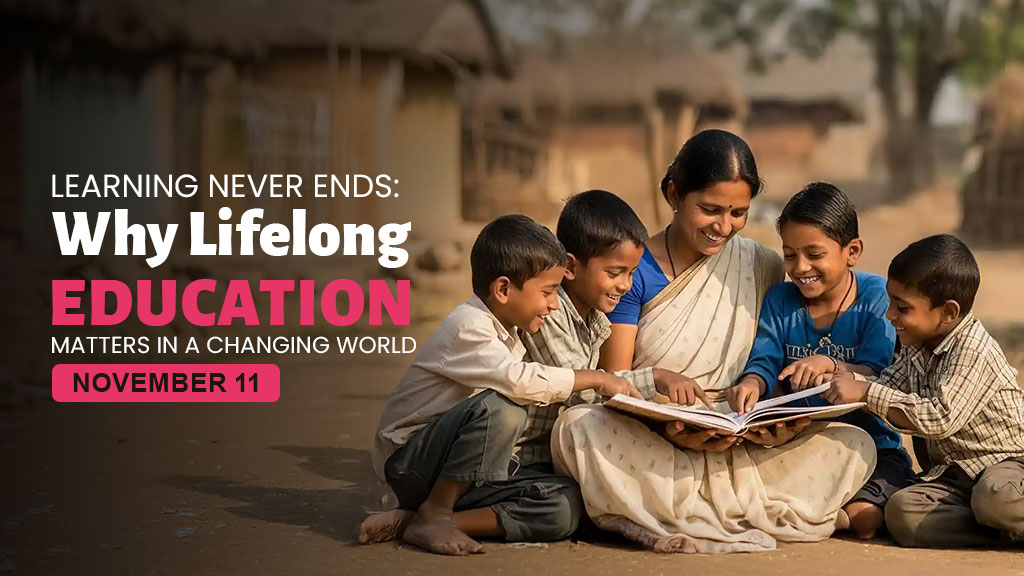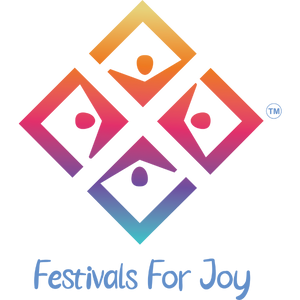
Learning Never Ends Why Lifelong Education Matters in a Changing World

Learning Never Ends: Why Lifelong Education Matters in a Changing World
Learning Across Life’s Journey
Learning isn’t something that ends when we graduate or finish school; it’s a journey that stretches across our entire lives. In today’s world, where technology evolves fast, jobs shift, and new challenges emerge, lifelong education isn’t just a personal benefit. It’s a necessity for resilience, growth, and meaningful contribution.
According to UNESCO, nearly 770 million adults worldwide lack basic literacy skills, and in India, over 25% of adults above the age of 25 have never completed secondary education. These numbers show how many people are left behind once formal schooling ends. With technology advancing and industries evolving faster than ever, the ability to keep learning has become a survival skill, not a luxury.
Even more concerning, a World Economic Forum report predicts that by 2030, 40% of today’s core skills will change, forcing millions to reskill to remain employable. Yet, lifelong education isn’t only about jobs, it’s about empowerment, inclusion, and human dignity. Without continuous access to learning, inequality widens, and opportunities shrink.
At Festivals For Joy, we’ve seen how education doesn’t stop at the classroom door. Through our community work and outreach, we encourage and support learning at every age not just for children, but for adults who dream, adapt, and keep building a better future.
As we mark National Education Day (11th November), it’s an opportunity to reflect on why education must go beyond a fixed period, because when learning never ends, potential is limitless.
Why Lifelong Learning Is More Important Than Ever
Adapting to a Fast-Changing World
In today’s rapidly shifting landscape, from climate change to economic disruption to digital transformation, the skills we learned years ago may no longer be enough. Lifelong learning helps us adapt. We can acquire new skills, pick up fresh knowledge, and stay relevant.
UNESCO defines lifelong learning as a process that spans all ages, all learning contexts (formal and informal), and covers a wide range of purposes.
It isn’t just about job skills; it’s about growing as individuals, participating in our communities, and meeting life’s challenges head-on.
Building More Inclusive, Just Societies
Lifelong education isn’t only a pathway for personal growth; it’s a social justice tool. When learning options are available to older adults, marginalized groups, and people outside formal education systems, education becomes a right, not a privilege.
By promoting policies that support education for all ages, societies become more equitable, more cohesive, and more resilient. When someone in a remote village or a working adult is given a chance to learn, the ripple effect is profound.
What It Means for Our Work at Festivals For Joy
At Festivals For Joy, we believe every person, child or adult has the capacity to grow, contribute, and lead. Our programs reflect this belief:
- Community Learning Workshops: During our local outreach events, we don’t just teach children. We also organize simple workshops for adults, where they can learn practical skills, literacy, or community development ideas.
- Peer Learning & Mentorship: Older members of the community often share knowledge with younger ones about life, work, culture. These informal exchanges strengthen bonds and spread wisdom.
- Learning Through Volunteering: When people volunteer and serve, they learn new perspectives, organizational skills, and empathy. For many, giving back becomes a learning curve in itself.
By building these opportunities, we help foster a culture where learning is woven into everyday life, not siloed into school years.
The Bigger Picture: Lifelong Education & Global Goals
Lifelong learning is a key part of the United Nations’ Agenda 2030, especially Sustainable Development Goal 4, which emphasizes “inclusive and equitable quality education and lifelong learning opportunities for all.”
According to UNESCO’s Institute for Lifelong Learning, learning systems must evolve to bridge formal education, community education, the workplace, and home-based learning.
This ensures no one regardless of their age or social status is left behind.
Additionally, lifelong learning empowers individuals to respond to global challenges. For example:
- Digital Literacy & Reskilling: With technological shifts, many adults need to learn new digital tools or re-skill to stay employable.
- Active Citizenship: Education helps individuals understand social issues and contributes to building more informed, empathetic societies.
- Sustainable Development: Learning about climate, health, and community resilience equips people to make meaningful change.
How You Can Be Part of the Lifelong Learning Movement
- Never Stop Being Curious: Whether you read a book, take an online course, or join a community circle, keep exploring new knowledge.
- Volunteer to Share What You Know: Teaching someone else is one of the deepest forms of learning. Your experience can be a gift.
- Support Adult Learning Initiatives: Donate or collaborate with programs that provide education to adults literacy centers, vocational training, or peer learning groups.
- Push for Age-Inclusive Education Policies: Advocate in your community or through local NGOs for educational opportunities for all ages.
At Festivals For Joy, every learner matters. By encouraging continuous learning, we build not just brighter individuals, but stronger communities.
Celebrating National Education Day with Purpose
On 11th November, as we celebrate National Education Day, let’s reflect on Maulana Abul Kalam Azad’s vision for education in India, a vision not limited to childhood schooling, but to lifelong opportunity.
This day isn’t just about remembering history; it’s about renewing our commitment. A commitment to make education a living, breathing reality for everyone at every stage of life.
Let’s reimagine education not as a beginning and end, but as a constant companion helping us grow, adapt, and serve others.
